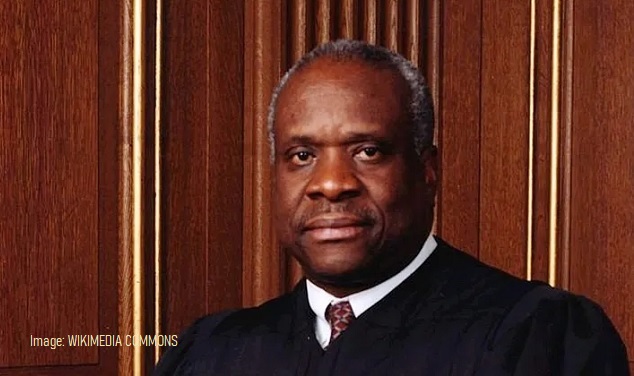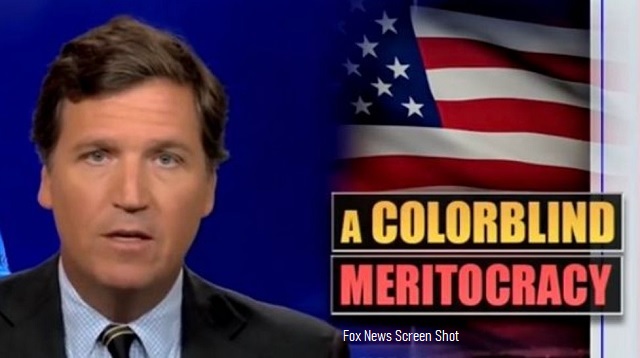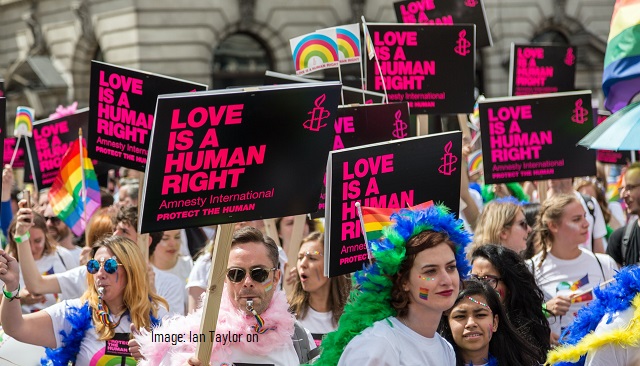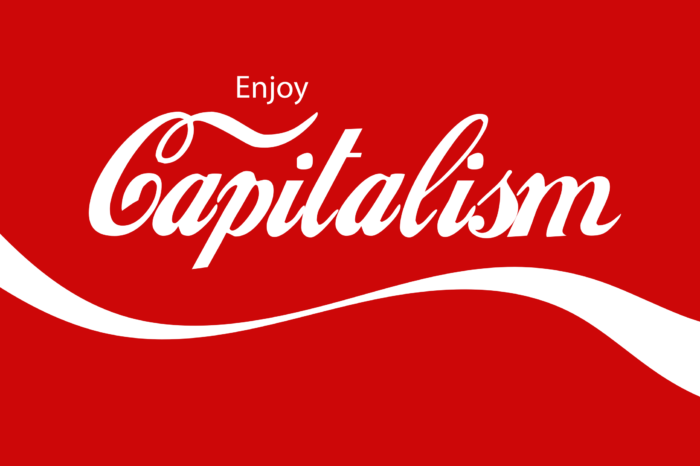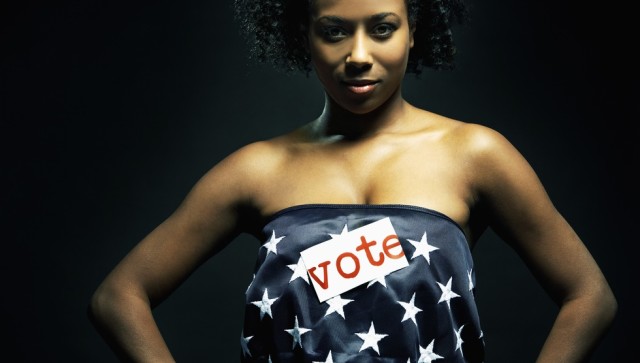The Power of Woke: How Leftist Ideology is Undermining our Society and Economy
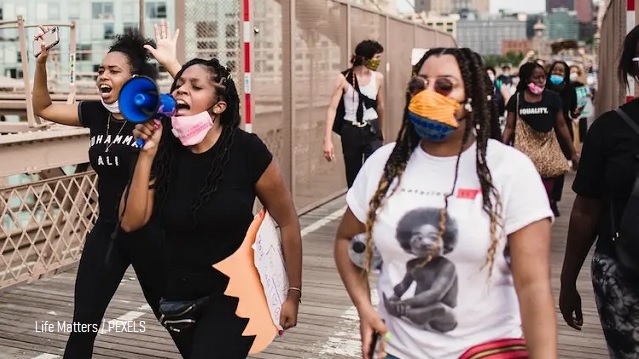
Neo-Marxism is a cultural cancer spreading through America and beyond.
“It’s an important part of society whether you like it or not,” lexicologist Tony Thorne, referring to “wokeness,” told The New Yorker’s David Remnick in January. That’s an understatement.
Wokeness is poisoning the Western workplace and constraining small and family businesses, midsized banks, and entrepreneurs while enriching powerful corporations and billionaires. It’s eating away at the capitalist ethos and killing the bottom-up modes of economic ordering and exchange that propelled the United States of America to prosperity during the nineteenth and twentieth centuries. It’s infecting Gen Z and millennials, who, suffering high depression rates and prone to “quiet quitting,” are not as well off as their parents and grandparents, and who feel isolated and alone even as they enjoy a technological connectivity that’s unprecedented in human history.
What, exactly, is wokeness, and how does it impact business and the wider society?
Subversion
The term as it’s widely used today differs from earlier significations. “Woke”, which plays on African American vernacular, once meant “awake to” or “aware of” social and racial injustices. The term expanded to encompass a wider array of causes from climate change, gun control, and LGTBQ rights to domestic violence, sexual harassment, and abortion.
Now, wielded by its opponents, it’s chiefly a pejorative dismissing the person or party it modifies. It’s the successor to “political correctness,” a catchall idiom that ridicules a broad range of leftist hobbyhorses. Carl Rhodes submits, in Woke Capitalism, that “woke transmuted from being a political call for self-awareness through solidarity in the face of massive racial injustice, to being an identity marker for self-righteousness.”
John McWhorter’s Woke Racism argues that wokeness is religious in character, unintentionally and intrinsically racist, and deleterious to black people. McWhorter, a black linguist, asserts that “white people calling themselves our saviors make black people look like the dumbest, weakest, most self-indulgent human beings in the history of our species.”
Books like Stephen R. Soukup’s The Dictatorship of Woke Capital and Vivek Ramaswamy’s Woke, Inc. highlight the nefarious side of the wokeism adopted by large companies, in particular in the field of asset management, investment, and financial services.
Hypocritical neo-Marxism
Wokeism, in both the affirming and derogatory sense, is predicated on a belief in systemic or structural forces that condition culture and behavior. The phrases “structural racism” or “systemic racism” suggest that rational agents are nevertheless embedded in a network of interacting and interconnected rules, norms, and values that perpetuate white supremacy or marginalise people of color and groups without privilege.
Breaking entirely free from these inherited constraints is not possible, according to the woke, because we cannot operate outside the discursive frames established by long use and entrenched power. Nevertheless, the argument runs, we can decentre the power relations bolstering this system and subvert the techniques employed, wittingly or unwittingly, to preserve extant hierarchies. That requires, however, new structures and power relations.
Corporate executives and boards of directors are unsuspectingly and inadvertently — though sometimes deliberately — caught up in these ideas. They’re immersed in an ideological paradigm arising principally from Western universities. It’s difficult to identify the causative origin of this complex, disparate movement to undo the self-extending power structures that supposedly enable hegemony. Yet businesses, which, of course, are made up of people, including disaffected Gen Zs and millennials, develop alongside this sustained effort to dismantle structures and introduce novel organising principles for society.
The problem is, rather than neutralising power, the “woke” pursue and claim power for their own ends. Criticising systems and structures, they erect systems and structures in which they occupy the center, seeking to dominate and subjugate the people or groups they allege to have subjugated or dominated throughout history. They replace one hegemony with another.
The old systems had problems, of course. They were imperfect. But they retained elements of classical liberalism that protected hard-won principles like private property, due process of law, rule of law, free speech, and equality under the law. Wokeism dispenses with these. It’s about strength and control. And it has produced a corporate-government nexus that rigidifies power in the hands of an elite few.
Consider the extravagant spectacle in Davos, the beautiful resort town that combined luxury and activism at the recent meeting of the World Economic Forum, perhaps the largest gathering of self-selected, influential lobbyists and “c suiters” across countries and cultures. This annual event occasions cartoonish portrayals of evil, conspiratorial overlords — the soi-disant saviours paternalistically preaching about planetary improvement, glorifying their chosen burden to shape global affairs. The World Economic Forum has become a symbol of sanctimony and lavish inauthenticity, silly in its ostentation.
The near-ubiquitous celebration of lofty Environmental, Social, and Governance (ESG) strategies at the World Economic Forum reveals a seemingly uniform commitment among prominent leaders to harness government to pull companies — and, alas, everyone else — to the left.
ESG is, of course, an acronym for the non-financial standards and metrics that asset managers, bankers, and investors factor while allocating capital or assessing risk. A growing consortium of governments, central banks, nongovernmental organisations (NGOs), asset management firms, finance ministries, financial institutions, and institutional investors advocates ESG as the top-down, long-term solution to purported social and climate risks. Even if these risks are real, is ESG the proper remedy?
Attendees of the World Economic Forum would not champion ESG if they did not benefit from doing so. That plain fact doesn’t alone discredit ESG, but it raises questions about ulterior motives: What’s really going on? How will these titans of finance and government benefit from ESG?
Follow the money
One obvious answer involves the institutional investors that prioritise activism over purely financial objectives or returns on investment (for legal reasons, activist investors would not characterise their priorities as such). It has only been a century since buying and selling shares in publicly traded companies became commonplace among workers and households. The US Securities and Exchange Commission (SEC), created in response to the Great Depression, isn’t even 100 years old.
Until recently, most investors divested if they owned stock in a company that behaved contrary to their beliefs. They rarely voted their shares or voted only on major issues like mergers and acquisitions. In 2023, however, institutional investors such as hedge funds and asset management firms engage boards of directors, exercise proxy voting, and issue shareholder reports with the primary goal of politicising companies. As intermediaries, they invest pension funds, mutual funds, endowments, sovereign wealth funds, 401(k)s and more on behalf of beneficiaries who may or may not know what political causes their invested assets support.
If a publicly traded company “goes woke,” consider which entities hold how much of its shares and whether unwanted shareholder pressure is to blame. Consider, too, the role of third-party proxy advisors in the company’s policies and practices.
Big companies go woke to eliminate competition. After all, they can afford the costs to comply with woke regulations whereas small companies cannot. Institutional investors warn of prospective risks of government regulation while lobbying for such regulation. In the United States, under the Biden Administration, woke federal regulations are, unsurprisingly, emerging. Perhaps publicly traded companies will privatise to avoid proposed SEC mandates regarding ESG disclosures, but regulation in other forms and through other agencies will come for private companies too.
The woke should question why they’re collaborating with their erstwhile corporate enemies. Have they abandoned concerns about poverty for the more lucrative industry of identity politics and environmentalism? Have they sold out, happily exploiting the uncouth masses, oppressing the already oppressed, and trading socioeconomic class struggle for the proliferating dogma of race, sexuality, and climate change? As wokeness becomes inextricably tied to ESG, we can no longer say, “Go woke, go broke.” Presently, wokeness is a vehicle to affluence, a status marker, the ticket to the center of the superstructure.
ESG helps the wealthiest to feel better about themselves while widening the gap between the rich and poor and disproportionately burdening economies in developing countries. It’s supplanting the classical liberal rules and institutions that leveled playing fields, engendered equality of opportunity, expanded the franchise, reduced undue discrimination, eliminated barriers to entry, facilitated entrepreneurship and innovation, and empowered individuals to realise their dreams and rise above their station at birth.
When politics is ubiquitous, wokeness breeds antiwokeness. The right caught on to institutional investing; counteroffensives are underway. The totalising politicisation of corporations is a zero-sum arms race in which the right captures some companies while the left captures others.
Soon there’ll be no escaping politics, no tranquil zones, and little space for emotional detachment, contemplative privacy, or principled neutrality; parallel economies will emerge for different political affiliations; noise, fighting, anger, distraction, and division will multiply; every quotidian act will signal a grand ideology. For the woke, “silence is violence”; there’s no middle ground; you must speak up; and increasingly for their opponents as well, you must choose sides.
Which will you choose in this corporatised dystopia? If the factions continue to concentrate and centralise power, classical liberals will have no good options. Coercion and compulsion will prevail over freedom and cooperation. And commerce and command will go hand in hand.
This article has been republished with permission from Mises Wire.
AUTHOR
Allen Mendenhall
Allen Mendenhall is an associate dean at Faulkner University Thomas Goode Jones School of Law, executive director of the Blackstone & Burke Center for Law & Liberty, and Managing Editor of Southern… More by Allen Mendenhall
RELATED VIDEO: Freedom is Worth Fighting For
EDITORS NOTE: This MercatorNet column is republished with permission. ©All rights reserved.

